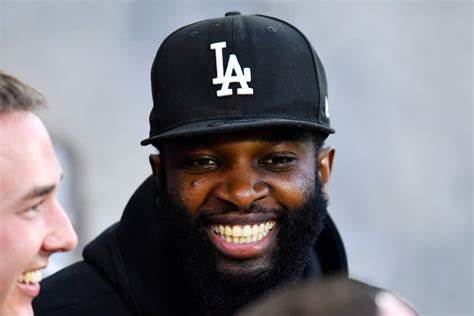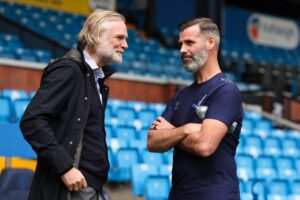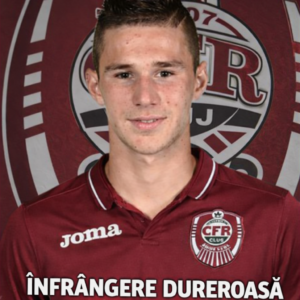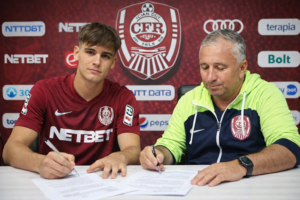
The Congolese midfielder recently caught wind of some online comments. Beni Baningime endured a grueling 120 minutes in the Scottish Cup in Paisley on Monday night, and no one felt more relieved than he did when Hearts advanced past St Mirren on penalties into the quarter-finals. Even though he managed to physically last the full match, that doesn’t mean the social media jabs have ceased.
Over his three and a half years in Scotland, Baningime has often been sidelined by fitness issues, but when he’s fit, he’s undeniably one of Hearts’ most influential players. His performance against St Mirren was a testament to that, and he’s set to anchor the midfield once again against Rangers at Tynecastle Park on Sunday, displaying his usual composure.
Despite starting seven of Hearts’ last nine matches as they built an eight-game unbeaten run in all competitions, Baningime is well aware of the recent online criticism regarding his fitness. However, he takes the teasing in stride. “Yeah, I feel good,” he laughed when asked about his condition after Monday’s game.
He continued, “Our goalkeeper, Fullers, mentioned he saw something on Twitter—something like ‘Beni Baningime played 120 minutes – see you in 18 months!’ It was so absurd it really cracked me up. But honestly, my body feels great. We had a solid preparation period, didn’t do much in the two days post-match, and allowed our legs to recover. I feel fantastic now, and it’s time to focus on the Rangers game.”
Baningime is unfazed by criticism. “I’ll be real with you,” he said. “For me, the fans are the best part of this game. Without their support, we wouldn’t be where we are as footballers. During the COVID times, it was dead, but you eventually learn to appreciate that pressure. Ultimately, the opinions of strangers—whether good or bad—don’t affect me.”
He added, “I don’t pay attention to random people’s opinions because why should I? I care about everyone and wish the best for all, but if you’re not my family or a friend, then what you say doesn’t really matter. Whether I’m playing well or badly, it all just fades away. That’s the mindset you need: never too high, never too low.”
Baningime’s leadership has become an increasingly important asset for Hearts under their current coaching setup. “I’m 26 now. I’m not a kid or a boy anymore—I’m a man, so it’s time to step up,” he acknowledged. “My style of leadership isn’t about shouting; it’s about taking control on the pitch. I try to get involved, keep the ball moving, and drive the team forward. It takes true courage to do that. Running around isn’t enough; in big games, especially against teams like Rangers or Celtic, you need to dictate play and ensure your team is organized. That’s how players like Eltons [Kabangu] and the Shanks [Lawrence Shankland] get their opportunities.”
Since the Belgian forward joined Hearts on loan from Union Saint-Gilloise last month, he has developed an immediate rapport with Kabangu. The new arrival was warmly welcomed in Edinburgh and quickly repaid that faith by scoring five goals in as many appearances. There’s little doubt that even more will come.
“I really admire his drive. He’s determined to succeed for both himself and the team,” Baningime remarked. “He puts in extra work and thrives in big games. He could have stayed at USG and maybe not played much, but he chose to come here. It isn’t easy with all the pressure from fans and the media, but he thrives on that big stage.”
He continued, “I’ve played with many players here, and I’ve never encountered anyone whose character made me think, ‘I don’t like you.’ That’s a testament to the club bringing in the right people.”
Off the field, Baningime and Kabangu share a deep connection, even communicating in their native language. “We speak Lingala from the Democratic Republic of Congo. Kabangu was born in Belgium, but his parents are Congolese, and I was born in Congo. Whenever I meet other Congolese, I always ask if they speak our language—because if you’re born here, you might not have learned it. I take pride in being both Congolese and British.”
Reflecting on his experience with Scottish culture, Baningime noted, “Every nation should be proud of where it comes from, regardless of your ethnicity. You should embrace your heritage. When I arrived here, I noticed some cultural quirks—like how people wear skirts at weddings—which was a bit different for me,” he smiled.







